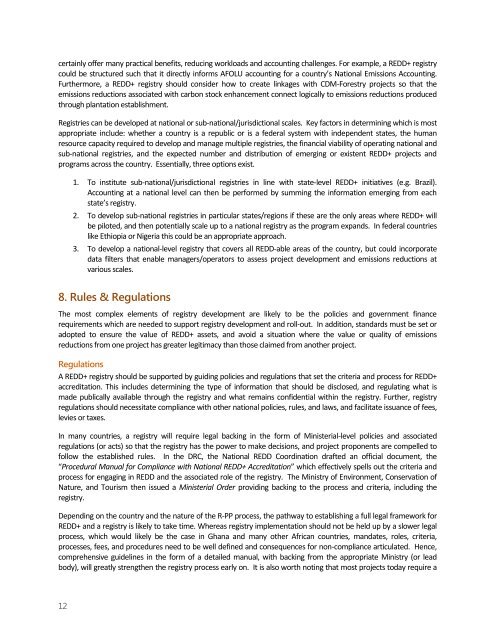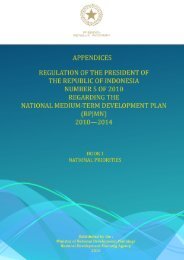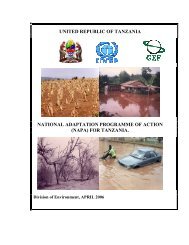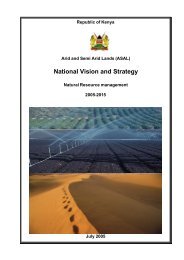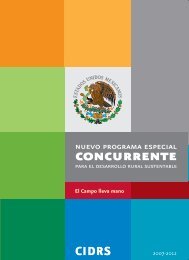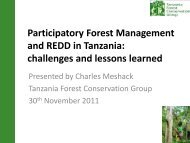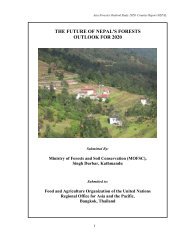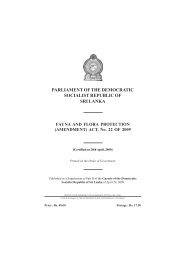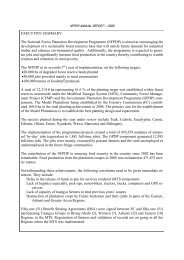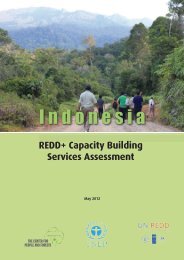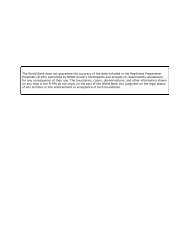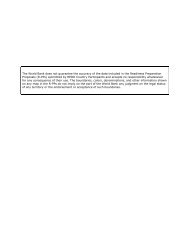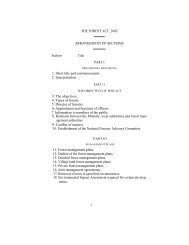PDF - The REDD Desk
PDF - The REDD Desk
PDF - The REDD Desk
You also want an ePaper? Increase the reach of your titles
YUMPU automatically turns print PDFs into web optimized ePapers that Google loves.
certainly offer many practical benefits, reducing workloads and accounting challenges. For example, a <strong>REDD</strong>+ registry<br />
could be structured such that it directly informs AFOLU accounting for a country’s National Emissions Accounting.<br />
Furthermore, a <strong>REDD</strong>+ registry should consider how to create linkages with CDM-Forestry projects so that the<br />
emissions reductions associated with carbon stock enhancement connect logically to emissions reductions produced<br />
through plantation establishment.<br />
Registries can be developed at national or sub-national/jurisdictional scales. Key factors in determining which is most<br />
appropriate include: whether a country is a republic or is a federal system with independent states, the human<br />
resource capacity required to develop and manage multiple registries, the financial viability of operating national and<br />
sub-national registries, and the expected number and distribution of emerging or existent <strong>REDD</strong>+ projects and<br />
programs across the country. Essentially, three options exist.<br />
1. To institute sub-national/jurisdictional registries in line with state-level <strong>REDD</strong>+ initiatives (e.g. Brazil).<br />
Accounting at a national level can then be performed by summing the information emerging from each<br />
state’s registry.<br />
2. To develop sub-national registries in particular states/regions if these are the only areas where <strong>REDD</strong>+ will<br />
be piloted, and then potentially scale up to a national registry as the program expands. In federal countries<br />
like Ethiopia or Nigeria this could be an appropriate approach.<br />
3. To develop a national-level registry that covers all <strong>REDD</strong>-able areas of the country, but could incorporate<br />
data filters that enable managers/operators to assess project development and emissions reductions at<br />
various scales.<br />
8. Rules & Regulations<br />
<strong>The</strong> most complex elements of registry development are likely to be the policies and government finance<br />
requirements which are needed to support registry development and roll-out. In addition, standards must be set or<br />
adopted to ensure the value of <strong>REDD</strong>+ assets, and avoid a situation where the value or quality of emissions<br />
reductions from one project has greater legitimacy than those claimed from another project.<br />
Regulations<br />
A <strong>REDD</strong>+ registry should be supported by guiding policies and regulations that set the criteria and process for <strong>REDD</strong>+<br />
accreditation. This includes determining the type of information that should be disclosed, and regulating what is<br />
made publically available through the registry and what remains confidential within the registry. Further, registry<br />
regulations should necessitate compliance with other national policies, rules, and laws, and facilitate issuance of fees,<br />
levies or taxes.<br />
In many countries, a registry will require legal backing in the form of Ministerial-level policies and associated<br />
regulations (or acts) so that the registry has the power to make decisions, and project proponents are compelled to<br />
follow the established rules. In the DRC, the National <strong>REDD</strong> Coordination drafted an official document, the<br />
“Procedural Manual for Compliance with National <strong>REDD</strong>+ Accreditation” which effectively spells out the criteria and<br />
process for engaging in <strong>REDD</strong> and the associated role of the registry. <strong>The</strong> Ministry of Environment, Conservation of<br />
Nature, and Tourism then issued a Ministerial Order providing backing to the process and criteria, including the<br />
registry.<br />
Depending on the country and the nature of the R-PP process, the pathway to establishing a full legal framework for<br />
<strong>REDD</strong>+ and a registry is likely to take time. Whereas registry implementation should not be held up by a slower legal<br />
process, which would likely be the case in Ghana and many other African countries, mandates, roles, criteria,<br />
processes, fees, and procedures need to be well defined and consequences for non-compliance articulated. Hence,<br />
comprehensive guidelines in the form of a detailed manual, with backing from the appropriate Ministry (or lead<br />
body), will greatly strengthen the registry process early on. It is also worth noting that most projects today require a<br />
12


